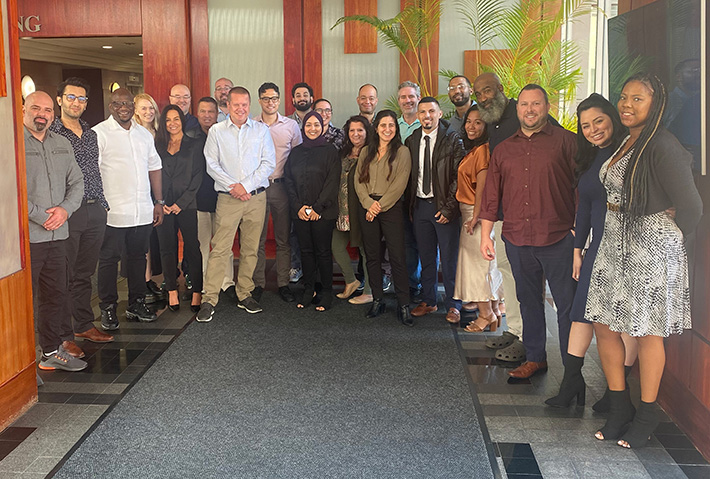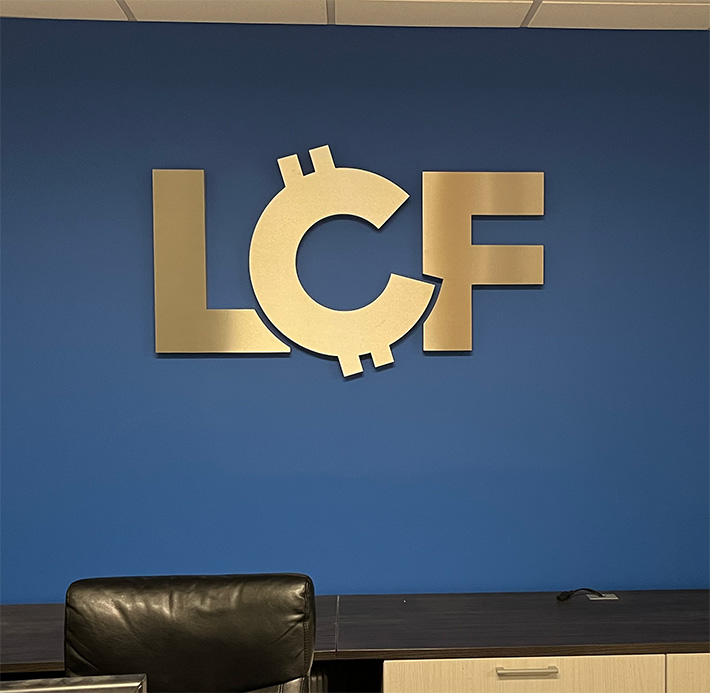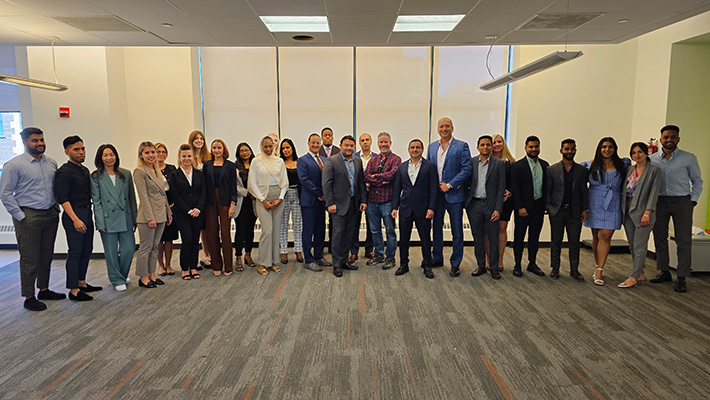Amazon’s Business Loan Program Relatively Flat, And The Company is Now Possibly the Largest MCA Broker?
October 29, 2023 Amazon’s seller lending program, in which the company extends working capital loans to Amazon sellers to buy inventory, has been somewhat flat this year. Its seller lending receivables in Q3 were unchanged from Q1, coming in at $1.2B. It had briefly gone up in Q2 to $1.3B.
Amazon’s seller lending program, in which the company extends working capital loans to Amazon sellers to buy inventory, has been somewhat flat this year. Its seller lending receivables in Q3 were unchanged from Q1, coming in at $1.2B. It had briefly gone up in Q2 to $1.3B.
Amazon rarely mentions its seller lending business which is but a blip compared to the $143B in net sales the company recorded in just the third quarter. Despite all this cash, Amazon relies on a $1.5B secured revolving credit facility with a lender in the same way many small business lenders do to facilitate this amount of loan volume.
deBanked has been tracking the company’s seller lending receivables balance since 2016.
Amazon’s separate merchant cash advance program is not counted as part of their selling lending program. Amazon partnered up with Parafin in November 2022 to offer MCAs to their clients. One consequence of that is that Amazon sellers talk publicly in the company’s Seller Central forums and this has been no exception. There, most mentions of Parafin have so far been less than flattering.
Much of the confusion reported by sellers is centered around the percentage collected from each sale. Unlike most MCA funding companies, which either withhold a percentage of card sales or debit a fixed daily amount that can later be trued-up upon request, Amazon was previously collecting its percentage “based on whether a seller had received any disbursements, automatic or manual, in the prior week.” However, that changed this past August, according to Amazon who published the following note in their forum:
Payment is deducted from your bank account based on your current Amazon disbursement schedule. If you receive disbursements weekly, payments for your cash advance will be deducted weekly. If you receive disbursements bi-weekly, payments for your cash advance will be deducted bi-weekly. In instances where Amazon sales data is delayed in reaching Parafin, Parafin combines the payment amount with the subsequent payment to avoid debits happening on unexpected days of the week. Sellers whose payments are impacted by these instances receive emails from Parafin detailing the expected payment dates and adjusted amounts.
…
“Your merchant cash advance will be paid off automatically over time as you make successive sales-based payments. Because your offer is determined in part by your past business performance, our estimate is that you’ll pay your merchant cash advance within the estimated timeframe stated when you accepted it. If your sales ramp up or slow down, your payment amounts (and therefore the estimated payment period) may ramp up or slow down with them. The payment rate itself will not change and is a fixed percentage of monthly sales.”
Although there is some irony to Amazon playing the role of MCA broker and MCA customer service, Amazon also refers its loan-interested sellers to Lendistry and Marcus by Goldman Sachs. All of this activity started late last year just as Amazon was on pace to max out its own credit facility with its own lending program. Since then, the company’s flat business loan receivable balance might suggest that Amazon’s seller financing business is actually growing, just not on its own balance sheet since its brokering the deals out.
So who’s the biggest MCA broker in the US? Amazon generated $514B in net sales in 2022. $1B in MCA deals wouldn’t be so hard for a company already doing about a billion a year in loans. It would be quite ironic to discover that the biggest MCA broker in 2023 was Jeff Bezos, but it’s a real possibility.
Addressing Misconceptions in the MCA Business
October 18, 2023 New to the MCA business? Think you got it figured out? Let’s visit some of the stranger beliefs and misconceptions I’ve encountered over the last year. (Not legal advice as I am not an attorney).
New to the MCA business? Think you got it figured out? Let’s visit some of the stranger beliefs and misconceptions I’ve encountered over the last year. (Not legal advice as I am not an attorney).
My broker/funding company’s legal address as recorded with the Secretary of State or courts is my personal information and no one is allowed to know it or share it on the internet.
False. The business address you place on file with governmental authorities or courts is generally available to the public. If you opt to use your home address as your business address, just know that it will be open to everyone to see and share. Additionally, starting Jan 1. 2024, any broker soliciting merchants that reside in Florida will have to take the additional measure of including their official business address in their marketing to the merchant. So no, you are not entitled to complete anonymity.
I can fund in all 50 states!
But can you though? If you offer loans, there are a number of state laws that govern the legality of that. If you offer MCAs, there are states like Virginia for which you are required to be registered by law (applies to both funders and brokers). There are penalties for not following the laws.
I don’t need any fancy systems to be a funder
Well you’re going to need something. In the not too distant future you will be required to comply with 888 pages of regulations governing how you can collect merchant data all while having to report the details of every single application you looked at in addition to every single deal you declined or funded to the federal government. You also have to explain the rationale for your decision in every instance. This includes MCA and yes it’s a law not a proposal. I hope you’re ready.
MCA is legal so I don’t need to worry about anything
There are legal precedents that guide what can or can’t be done with regards to the purchase of future receivables. Generally speaking (and please consult with an attorney), one’s right to collect is not absolute. See this recent case, for example.
I sent some deals out to some shady funders who have gone MIA and no longer take my calls. The funder is to blame and is bad
Most brokers who cry foul about no-name fly-by-night funders that offered swift approvals and high commissions only to be ghosted are quick to share that they were swindled out of a potential commission. No one likes to suffer through that. However, consider the legal risk now posed to yourself and your client with the information you’ve passed on. In a recent criminal case, an ISO managing merchant documents is alleged to have stolen their identities and obtained dozens of business loans in their names. So ask yourself on a scale of 1 – 10, how confident are you in the person/company you’re passing a merchant’s deal docs to that they will comply with all state and federal laws? Your commission might not be the only thing they steal and that creates legal hazard for you. For what it’s worth, he’s a good guy isn’t a great standard when it comes to legal due diligence.
As always, please consult a qualified attorney. If you are being solicited by a funder that has not sought any legal advice at all and is instead operating by the seat of their pants because they heard this was a good business, you should probably move on to someone else.
From A to D: How LCF is Aiming High
October 9, 2023
Robert Kleiber was a banker. He started his career at Citi in 2000 and rose up the ranks to become Head of Small Business Banking for North America by 2014. By then times were changing and disruptive fintech technology was becoming the talk of the town. Kleiber saw it firsthand and wanted in. So, he made the daring move to leave Citi in 2016 to go make his mark in the rapidly evolving world of small business finance.
He first served as the CFO of an NYC-based fintech company until another unique opportunity presented itself. It was at a growing company on Long Island that he hadn’t really known that much about previously. The way Kleiber tells it to deBanked, the company had a way of communicating the scale of its aspirations that got him really excited. He went for it. The company was called The LCF Group, a revenue-based financing provider that was headquartered in New Hyde Park. Today, Kleiber is the CFO & COO of the LCF Group. Founded in 2011, the company has solidified itself as a stalwart in what folks often call the “C & D paper” space.
“The goal,” Kleiber reveals, “is to be largest subprime funder by the end of next year.”
That’s a lofty ambition. In an industry oft-filled with big talk and rosy projections, LCF’s trajectory actually appears to support this possible outcome. Between in-office and remote, the company already has approximately 200 employees and it’s been on a hot streak of recruiting talent. Most compelling of all, however, is that LCF recently acquired select strategic assets and licensing rights to a well-regarded name in the industry, Reliant Funding. At the time of the announcement, the company said that “This strategic move not only enhances LCF’s portfolio but also empowers us to offer merchant funding through both ISO partners and directly under the LCF and Reliant brands.”
 “On the direct side, our plan is to build up Reliant on originations […] and get them back to where they were before,” Kleiber says.
“On the direct side, our plan is to build up Reliant on originations […] and get them back to where they were before,” Kleiber says.
In that regard, LCF fully intends to leverage the Reliant name back into a powerhouse funding arm in the prime paper arena, first by going direct to merchant and then by taking on ISO/referral business for it. Between its two brands then, the company is on its way to covering the gamut from A – D. Unsurprisingly, all of this activity requires strong technology to make everything work. Kleiber says that they have 20-25 developers constantly building out their systems, which they rely on to not only increase the speed in which they can approve deals but also to achieve maximum compliance.
“We take compliance super serious,” Kleiber says. “Our differentiator is transparency, operating above board.”
LCF’s new Director of Sales, Jason Redding, who previously spent ten years at OnDeck, echoes same. “Even though it’s C & D paper, we’re doing this the correct way,” Redding says. Redding, who experienced the incredible ride at his former employer from startup to IPO and beyond, explains that LCF is giving him a similar feeling of what that journey was like. “Being part of something like that again is something I’m looking forward to,” he says.
And yet when it comes down to product, the company is perfectly content for the time being to focus on what they’re good at, which is revenue-based financing through and through. They’ve determined it’s better to lean in and try to be the best at something rather than try to offer too many different things.
At the LCF office in New Hyde Park, one can find various departments working to carry out the company’s mission. Among the introductions and small talk made during a walkthrough, one line uttered by a veteran member of their team stands out. “In this industry you don’t have to be earth shatteringly different, just operate with honesty, integrity, and transparency, and success will follow.”
This Funding Shop Puts Students on the Phone for College Credit
October 5, 2023 “We figured out the best way is to recruit,” said Khoury.
“We figured out the best way is to recruit,” said Khoury.
Chris Khoury, CEO of Cheetah Capital, isn’t just hiring talent; he’s teaching it. He introduced a funding academy for college students in the summer of 2022. It’s an actual internship program that is specially tailored to recruit and train aspiring brokers and sales reps and teach them everything from the ground up.
Starting in the business three years ago, Khoury eventually went on to establish Cheetah Capital. He recognized the challenges in finding quality hires in the industry and decided to tackle it head-on with the creation of the program.
“[The interns] learn various skills such as cold calling, crafting professional emails, and acclimating to the corporate environment,” said Khoury. “Our program aims to provide valuable real-world experience that complements their academic learning to develop in business, marketing, and communication. They also gain experience understanding the world of financial services.”
The program is a collaboration between Khoury, Jonah Farella (Director of Sales & Business Development), and Joe Zampell (COO). The program is split into three “spots” (Spot 1, 2, & 3), where they each mentor 10-15 students and assess them on a weekly basis. Each student has an individual mentoring session each week and a team meeting every Monday.
Based in Boston, Cheetah Capital partners with local institutions such as UMASS, Boston University, Boston College, and Endicott College. Many of these schools have accredited their students with college credits upon validation from their team but interns are also compensated for their efforts.
“For Fall 2023, we’ve taken a slightly different approach,” said Khoury. “Rather than our usual remote/and in person internships, we’ve partnered with local Boston schools for a fully in-person co-op experience. These students dedicate their full semester to Cheetah Capital, working regular 9-5 hours, immersing themselves in a comprehensive professional environment.”
Chris Bearden, a current intern from Endicott, discovered the program on LinkedIn and secured an interview with Farella. Considering he is required to complete a 32-hour weekly internship in his senior year, Bearden has decided to cut his teeth in business in the world of b2b finance sales. He actually started at Cheetah this past June despite the internship program not officially starting until the fall. The program, he told deBanked, started off with a lot of training and he says it’s prepared him to be able to talk more confidently to business owners and in general. He mused about the “100 different stories” he’s heard daily. “Everyone will tell you something different,” he said.
“The most I’ve made on a sale so far is $8,000 off of one deal,” Bearden shared. “That was really exciting, I can’t really describe the feeling being 22 years old and coming off of a phone call understanding that I just made that much money. But I think one thing that they have taught me at Cheetah Capital is just to keep your head down and kind of keep going…”
Farella, who oversees the program, also started out as an intern himself. As a graduate from Boston College, he was mentored by Khoury and he adapted to the industry quickly. Once he started closing deals and making money he realized, “I’m making more money than I ever have.” Helping the interns in his program at the time later turned into an offer from Khoury on running the program.
“Right now, we cap at around 45-50 [students] and that’s because we only have them for about three months,” said Farella. “But as it grows, and we bring in more managers, what we want to do is kind of offer interns a return offer.”
Offering real-world work experience to students while building up quality employees has felt like a win-win for Cheetah.
“We try to take good well-rounded kids here and teach them what we wish we knew at their age,” said Khoury.
Are You an Underwriter Thinking About Going into Sales?
September 26, 2023 My days of working on deals are long gone but once upon a time I was the head of one of the most well-known MCA underwriting departments (Merchant Cash and Capital). The problem was that I was a restless 24 year-old with a front row seat to watching ISOs my age and younger make up to 4x as much as my salary all while spending their days giving me a hard time. I don’t have to recall what it was like because I wrote it down when it was happening.
My days of working on deals are long gone but once upon a time I was the head of one of the most well-known MCA underwriting departments (Merchant Cash and Capital). The problem was that I was a restless 24 year-old with a front row seat to watching ISOs my age and younger make up to 4x as much as my salary all while spending their days giving me a hard time. I don’t have to recall what it was like because I wrote it down when it was happening.
“ISOs debate constantly about declines and make excuses for required paperwork that merchants can’t produce,” I wrote.
I had little appreciation for how hard sales was and I relished being a hardliner on guidelines. While this approach ultimately paid off majorly for the company (it was in the run-up to 2008!), it did not prepare me for what I did next. I quit my position and became a sales rep for an affiliated ISO, you know because I thought I would automatically become rich off commissions.
After learning that sales meant I would get only 3 leads per day, it dawned on me that 95% of my time would be spent cold calling UCCs. And so that’s what I did, blasting away UCCs on a manual hand dial basis because there was no auto-dialer. Getting any app in at all was a huge achievement and I begged and pleaded with underwriters to pre-approve incomplete files that in a former life I would have enjoyed striking down.
It was a very humbling experience, which was made all the more humble when about a month later almost every MCA company in the industry stopped funding as credit lines got pulled and the financial system came to a standstill to kick off the Great Recession. I really could not believe my luck. My position had no base pay in those days so I had really shot myself in the foot. Just as before, I documented my experience.
“My streak was extended to 25 declined deals and a merchant I had been pitching for literally 4 months was finally giving me a shot. The sweat, the stress, and the dwindling commission paychecks led to the addition of a 2% closing cost on the deal. The merchant ok’d it and signed my form.”
I wasn’t the closing fee type but after the terrible streak and virtually no pay for a whole month, it happened. Unfortunately, the funder I did it with was not happy about it at all.
“The funder got wind of the closing cost and called our office,” I wrote. “Something was said about greed and overburdening their merchant. A warning was issued and they were going to watch my submissions more closely. 25 straight submissions with auto-decline notices, 4 months of sweat in closing a deal, and only a quarter of that 2% closing cost actually going into my pocket. That’s pre-tax by the way. Now I’m on their watch list.”
Somehow, somewhere at a funding company there was an underwriter out there talking about me being an annoying ISO. Fortunately, I appreciated the irony at the time and it was no hard feelings. I felt thankful for having had the experience on the other side of the table.
If you’re wondering if I went back to underwriting or gave up sales, I didn’t. I continued on as a sales rep and manually dialed hundreds of people a day for another three years. I really enjoyed the challenge and the motivation it sparked inside me. I ended up getting a lot of deals funded, though probably not enough to say that I was ever great at it. I launched deBanked while doing this believe it or not. Smile and dial during the day, type on the site at night. Oh those were the days.
The moral of my experience is that the grass is always greener on the other side and sometimes it takes walking a mile in another person’s shoes to really appreciate what they do. If you’re ever annoyed by someone you have to deal with or envious of whatever they’re getting, just know there’s probably more to the story. I hope this helps.
The State of Funding Right Now
September 19, 2023 “The first quarter was actually kind of slow, like abnormally slow,” said Daniel Dias, founder of Small Business Lending Source, a brokerage based in San Diego. “We came off actually a record-breaking year last year. First quarter this year turned out slow and then it was kind of weird. Maybe it was owners who are hesitant to see what’s going on because there’s a lot of uncertainty in the market.”
“The first quarter was actually kind of slow, like abnormally slow,” said Daniel Dias, founder of Small Business Lending Source, a brokerage based in San Diego. “We came off actually a record-breaking year last year. First quarter this year turned out slow and then it was kind of weird. Maybe it was owners who are hesitant to see what’s going on because there’s a lot of uncertainty in the market.”
Dias says things changed dramatically in Q2, however, to the point of setting yet again a new record. And the momentum only continued into Q3.
“This quarter is actually turning out really well,” he said.
It’s also going really well for Greenbox Capital, a small business funding company based in Miami.
“Q3 has been our best quarter this year,” said Jordan Fein, Greenbox’s CEO. “We positioned the company well over the last 8 months, ready for whatever the economy throws our way. We are running lean and growing again.”
Greenbox began to tighten its credit policies late last year, according to Fein and by continuing this strategy into 2023, it has allowed the company to evolve. “Our momentum has been building ever since we tightened credit and refined our spending in Q4 2022,” Fein said.
Optimism is also in the air at The LCF Group, a small business funding company based on Long Island. “Navigating Q3 and approaching Q4, we anticipate our positive trajectory to continue given the consistent demand from merchants,” said Andy Parker, LCF’s CEO. “Despite certain sectors of the economy facing challenges and the appearance of recession indicators, we’ve adapted our underwriting to reflect these conditions without any major tightening of our guidelines.”
LCF recently announced that it had acquired key strategic assets from Reliant Funding.
Experts: How GFE Went Big
September 6, 2023The Brewster Building is an icon in Long Island City, a bustling district of Queens that’s right across the water from Manhattan. Most people know the building as the official headquarters of JetBlue because their giant logo on the roof can be seen from miles away. Others identify it as a major corporate hub for The Estée Lauder Companies since they sublease a substantial amount of office space inside. But up on the eighth floor, men and women traversing the hallways in suits work for another employer that’s making a splash in a different industry altogether. The sign on their door says GFE, which is short for Global Funding Experts. It’s a company that provides working capital to small businesses nationwide and they just recently secured a senior debt facility of up to $100 million.
Boris Musheyev, GFE’s CEO, founded the company almost a decade ago with partner Viacheslav “Steve” Eliyayev. Musheyev was working mainly in real estate when he learned about an innovative way to support small businesses by purchasing their future receivables. A cautious investor, he didn’t just jump right in. Instead, he bided his time with research on how it worked. He crunched numbers and analyzed the risks before he was confident it was something he wanted to do.
“From the outset, I’ve only channeled funds into ventures I wholeheartedly believed would both succeed and offer genuine value,” Musheyev told deBanked. “This commitment was evident in 2013 when we began by investing our capital.”
Alas, Global Funding Experts was born. The company’s model is referral partner driven, meaning they rely on ISOs for submissions and there’s no internal sales force. Today, GFE has an estimated 1,500 ISOs signed up and they receive about 700 applications on an average day. It’s a level of scale that wouldn’t be possible if they didn’t have an efficient CRM, something Musheyev predicted the necessity and utility of long before. GFE began building its own proprietary CRM in 2017 and the company used that to accelerate growth beyond its early startup days.
 With its momentum, GFE brought on Boris Shakhmurov to serve as COO in 2019, a traditional banking executive with 20 years experience. Shakhmurov was previously an Executive Director at JPMorgan Chase and had overseen mainly cybersecurity, technology controls, and compliance before making his move to GFE. The two Boris’s knew each other previously, having been friends for over 30 years already. At GFE, Shakhmurov’s pitch that “banks don’t lend to small businesses” lands differently given his background.
With its momentum, GFE brought on Boris Shakhmurov to serve as COO in 2019, a traditional banking executive with 20 years experience. Shakhmurov was previously an Executive Director at JPMorgan Chase and had overseen mainly cybersecurity, technology controls, and compliance before making his move to GFE. The two Boris’s knew each other previously, having been friends for over 30 years already. At GFE, Shakhmurov’s pitch that “banks don’t lend to small businesses” lands differently given his background.
“As an expert in Governance, Risk, and Compliance, when I joined the organization in 2019, our goal was to establish a best-in-class MCA Operational Resilience framework to address current and future challenges facing our industry,” Shakhmurov said. “With a focus on building strong and resilient operational controls, we used a multidisciplinary approach to assess the risk across all of our information assets and business processes. The Zero Trust and Defense-in-Depth approach enabled us to focus on early detection, rapid response, enhanced protection, and reducing single points of failure throughout the entire MCA lifecycle.”
For all the technical talk, Shakhmurov said what really stands out is the firm’s family-like atmosphere, which one can see for themselves in their spacious office. That environment has been achieved all while tightly controlling and compartmentalizing access to data, the company says. Security is paramount.

With the infrastructure in place, GFE hired Jonathan Mayer to be their CFO, a veteran accountant who previously spent more than 10 years at Grant Thornton LLP. Mayer first met Musheyev and Shakhmurov in 2021 and he echoed a similar sentiment about how he ended up at GFE. “The work ethic and trust and family environment really stood out to me,” Mayer said.
Between Musheyev, Eliyayev, Shakhmurov, and Mayer, the firm was then off to the races, ultimately leading up to the securing of a debt facility last month of up to $100 million. A lot went into making that happen, including the enlistment of a well known industry law firm to perform the due diligence, they say.
“Through consistent communication with our merchants and operational adaptability, we’ve not only met but surpassed our profitability benchmarks, all the while ensuring minimal defaults in our portfolio,” Musheyev said.
The company also credits having a qualified CFO and robust CRM technology as being necessary ingredients to getting a serious deal done. GFE’s signature products include purchases of future receivables, reverse consolidations, and more recently something called “Incremental Funding.” There’s also no commission clawbacks, they tout. Overall, GFE has funded over $400 million in capital to small businesses since inception.
The executive team heaped praise on the staff for being integral to their success.
“What we have is trust,” Shakhmurov said, who comes back again and again to the importance of building a business that will endure. “If you look at the banking industry, you need operational resilience,” he said.
New York’s Fourth Department: Revenue Purchase Agreements Are Not Loans
August 25, 2023A lawsuit brought by Samson MCA LLC against Joseph A. Russo M.D. P.C./IV Therapeutics PLLC, DBA Aspire Med Spa & Joseph Russo & Marco V Beatrice has brought revenue purchase agreements back in to the legal spotlight in New York State. Once again its been affirmed that they’re not loans.
In May 2021, plaintiff Samson MCA sued defendants for breach of contract and won on summary judgment despite defendants’ contentions that the revenue purchase agreements at issue were actually “criminally usurious loans.” Defendant Marco V Beatrice appealed. After a very careful analysis of the agreements, a final decision was issued by the Appellate Division, Fourth Department on August 11, 2023.
“On appeal, [defendant] contends that the agreements are void because they are criminally usurious loans and that the court therefore erred in granting plaintiff’s motion and denying defendants’ cross-motion with respect to him,” the Court stated. “Thus, the central question before us is whether the two agreements were, in fact, revenue purchase agreements or whether they were, instead, loans.”
The Court said that when determining whether a transaction constitutes a loan, courts must determine whether the amount is repayable absolutely or under all circumstances:
“Usually, courts weigh three factors when determining whether repayment is absolute or contingent:
(1) whether there is a reconciliation provision in the agreement;
(2) whether the agreement has a finite term; and
(3) whether there is any recourse should the merchant declare bankruptcy”
Final decision:
Contrary to [defendant’s] contention, plaintiff established as a matter of law that the agreements were revenue purchase agreements rather than loans, and [defendant] failed to raise a triable issue of fact with respect thereto (see Principis Capital, LLC, 201 AD3d at 754). Here, the agreements submitted by plaintiff contained reconciliation provisions requiring the adjustment of the remittance amount upon request based on changes to the entity defendants’ revenues, and had no finite term and no payment schedule. Additionally, as noted, each agreement contained an acknowledgment “that [plaintiff] may never receive the purchased amount in the event that [the entity defendants’ business] does not generate sufficient revenue” and, for the most part, plaintiff did not have recourse in the event that the entity defendants declared bankruptcy (see Streamlined Consultants, Inc. v EBF Holdings LLC, 2022 WL 4368114, *5 [SD NY, Sept. 20, 2022, No. 21-CV-9528 (KMK)]).
We have reviewed [defendant’s] remaining contention and conclude that it does not warrant reversal or modification of the judgment.
The original lawsuit can be found under Index No. 129401/2021 in the New York Supreme Court.
Full decision by the Appellate Division, Fourth Judicial Department can be found here.































